
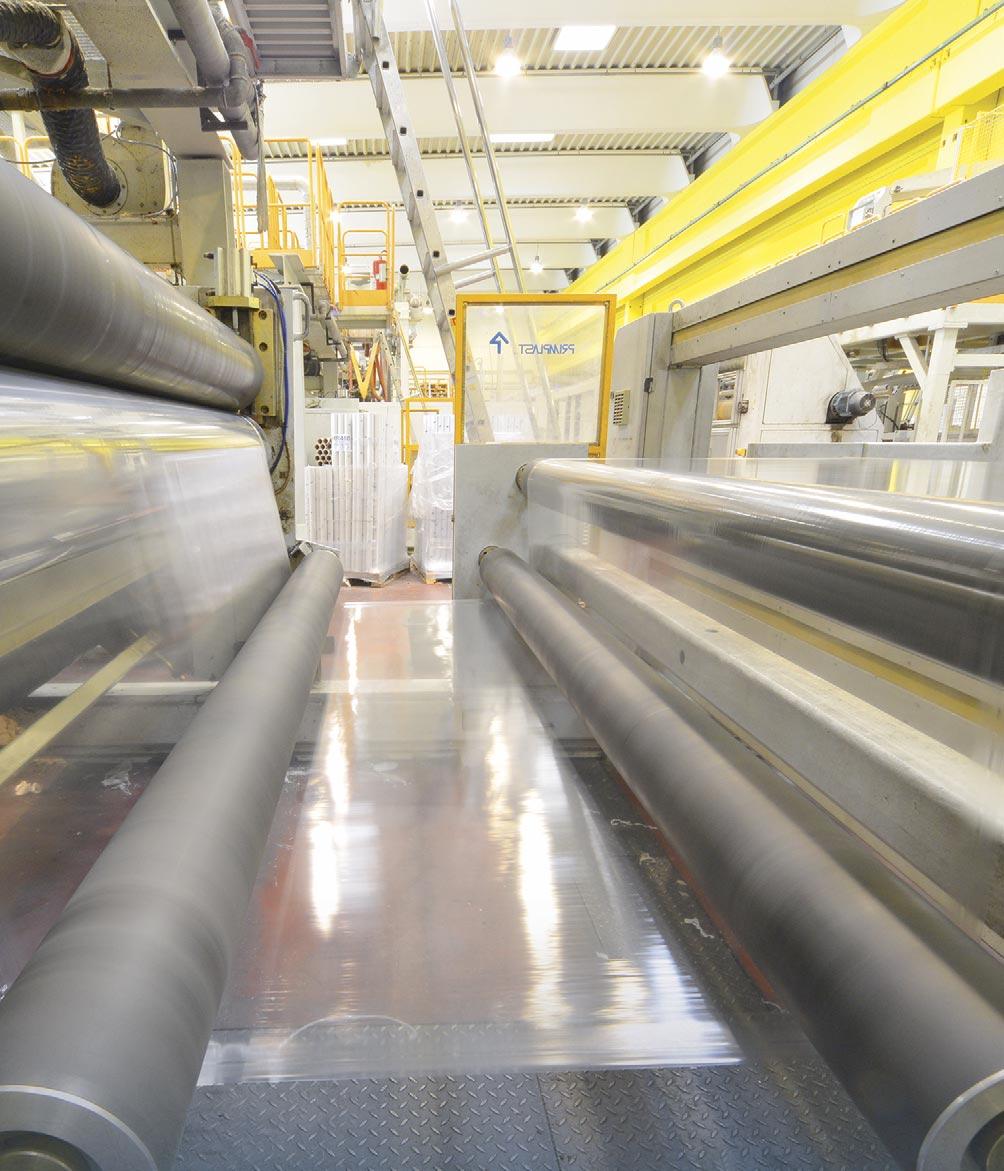
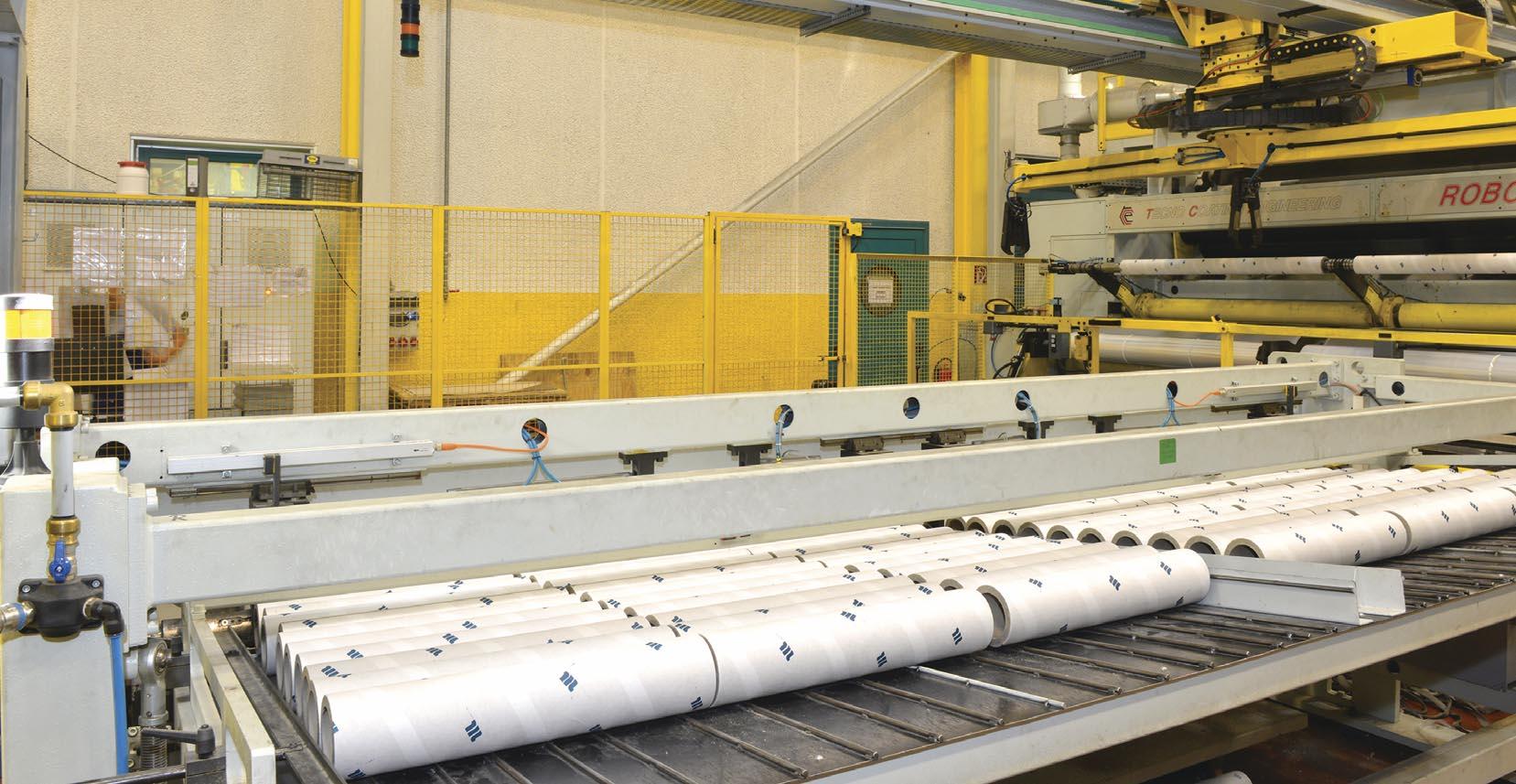




Manupackaging is a long-respected name in manufacturing ultimate protection solutions for goods in transit. As the inventor of stretch film in Europe, the Italian company is now taking a leading role with Manunature®, a biodegradable and recyclable innovation that is taking global logistics to the next level in sustainability and security.
Pierfranco Di Gioia, Group CEO, and Massimo Moroni, Manupackaging Chief Procurement Officer and Marketing Director, explain how the company is recalibrating industry standards. Interview by Andy Probert.
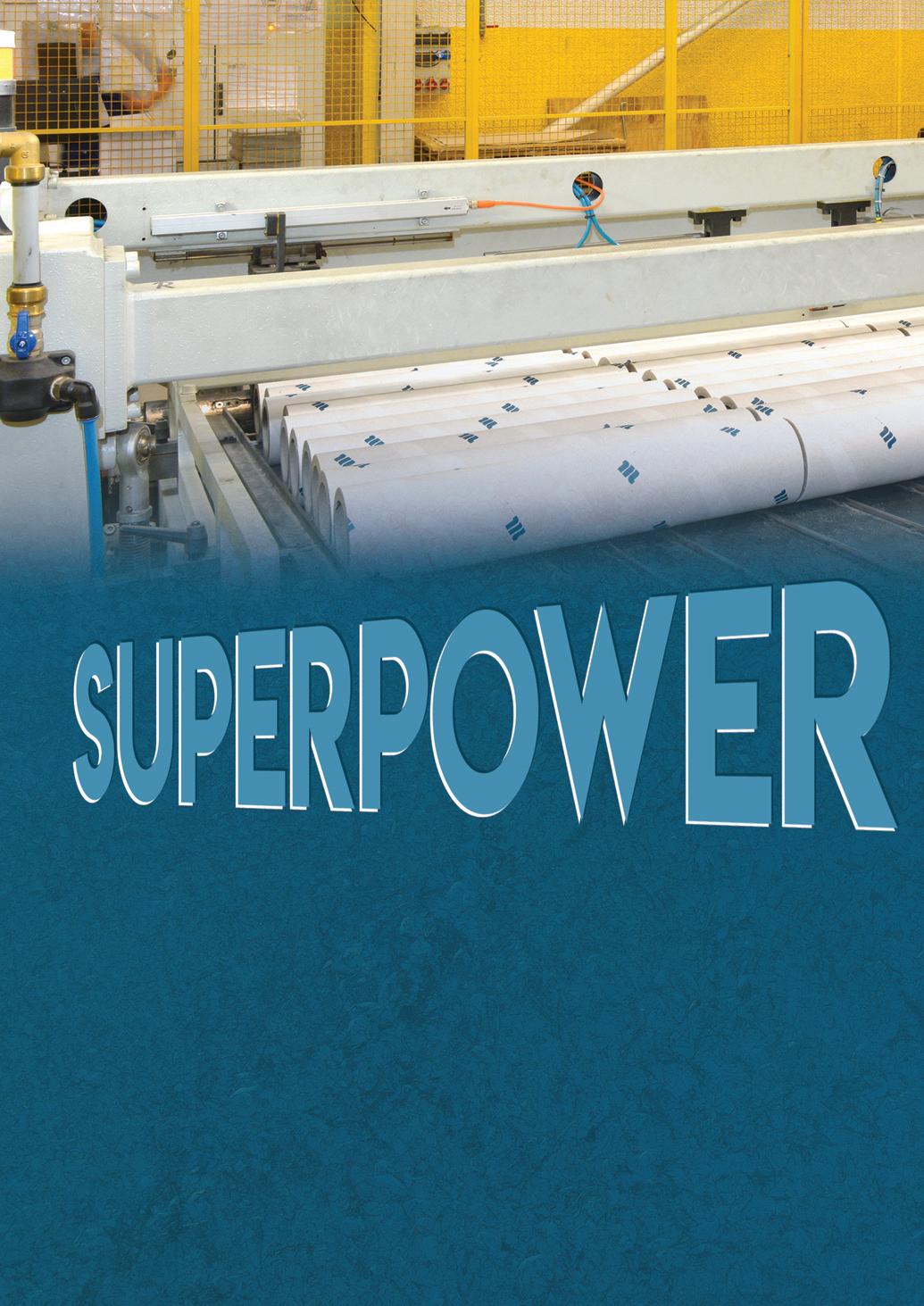
Destroyed. Shattered. Ruined. Three words that haunt industry on a daily basis when it comes to the global transportation of goods. However, more than 15,000 companies across 65 countries count on Manupackaging to ensure their products arrive safely and reliably at their final destinations in one piece.
The company designs, manufactures and supplies 100% recyclable premium protective packaging solutions. These include LLDPE pallet wrapping films, stretch hoods and other films.
“We endeavour to put ourselves in our customers’ shoes,” explained Pierfranco Di Gioia, CEO of M Stretch, the holding company of Manupackaging. “Only then can we understand and meet their needs and ensure their goods remain undamaged at every step in the supply chain.”
Known initially as Manuli Stretch, founded in 1969 in Milan, Italy, Manupackaging is recognised as the inventor of stretch film in Europe. Today, the company has a global
presence, a main manufacturing plant in Sc hkopau, Germany, and other production sites in Argentina and Brazil. It has 11 distribution locations across the UK, Europe and South America to serve clients locally.
Customers can be found in many industries that require end-of-line pallet protection, from food and beverage to fresh and canned goods, agriculture, medical, construction, electronics, paper and waste recovery.

Manupackaging remains highly flexible to client demands. Whether it is a demand for more pre-stretch, more material thickness or a unique material mix, its decadeslong experience can enable it to select the best transport packaging option for each customer – irrespective of whether they’re moving 30, 1,000 or 6,000 pallets a day.
“For the right solution, we can also develop it at our in-house research and development centre,” said Massimo Moroni, Manupackaging Chief Procurement Officer and Marketing Director. “This guarantees
perfect product quality and the best priceperformance ratio to give a client’s goods ideal protection.”
The company’s deepening commitment to using natural resources sustainably and protecting the environment have contributed to it creating the Manunature® range of superpower stretch film applications.
Manunature® BB is manufactured using renewable raw materials and consists of
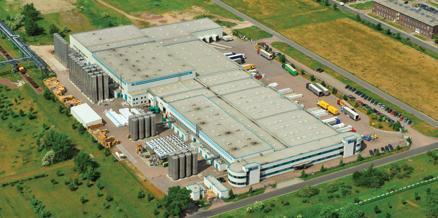
50% organic LLDPE, a waste product from the timber industry. It is also 100% recyclable. With every kilogram of organic LLDPE raw material used, two kilograms of CO2 are taken out of the atmosphere.
Manunature® BD is biodegradable and 100% recyclable. As a result of the biological degradation process, the polymers, after the film service life, decompose to CO2, water and biomass. It is also approved as biodegradable according to the BSI PAS 9017:2020 criteria, the world’s first standard, which ensures polyolefin plastics fully biodegrade in the open terrestrial environment without creating any microplastics or harm to nature.
Manupackaging’s high-quality, highperformance polyethylene stretch film, Manunature® RR, is also 100% recyclable, composed of at least 30% post-commer -

cial recycled plastics, and, depending on the intended use, up to 60% regenerated material in total.
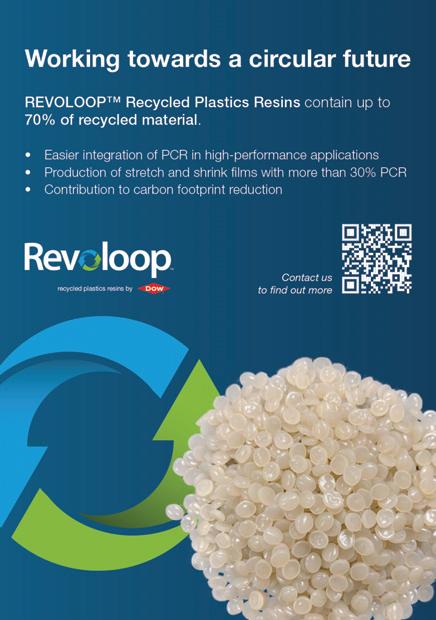
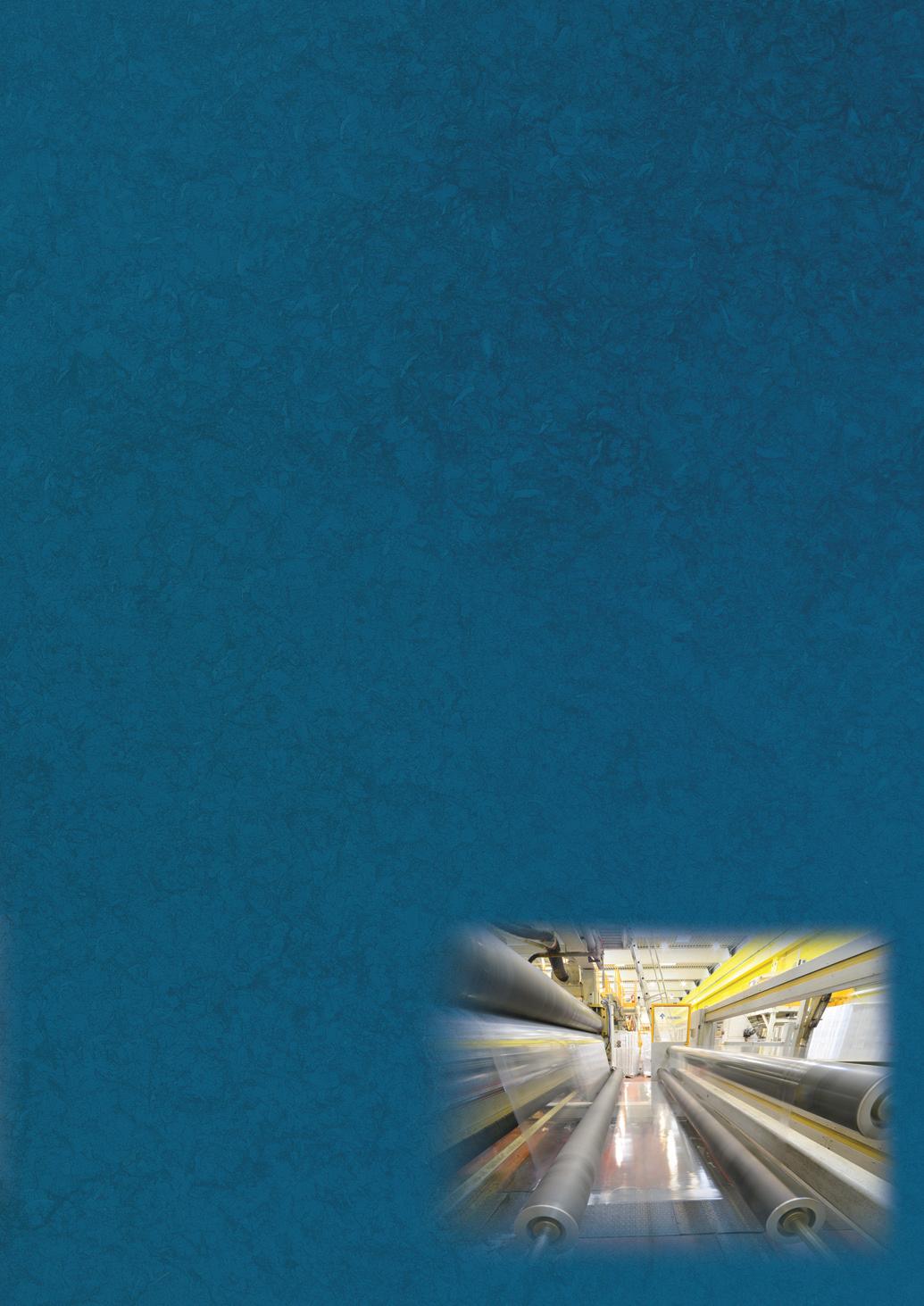
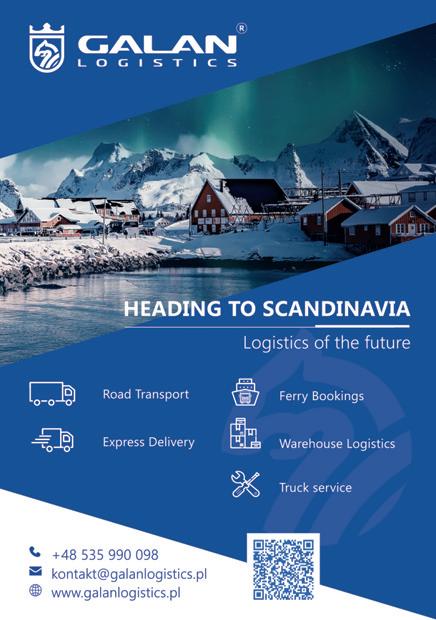
“One of the main advantages of the Manunature® range is that it can be reused up to seven times,” Mr Moroni said. “This promotes our commitment to the circular economy. Manupackaging is constantly optimising its production and logistics processes by reducing waste consumption and using recycled plastic where possible. Our Manunature® and superpower stretch film range can reduce material consumption per pallet by up to 50% compared to standard conventional stretch films.”Mr Di Gioia echoed that sentiment: “Increasing demand for sustainable packaging solutions across all industries has encouraged us to develop
eco-stretch films, which eliminate micro-plastics issues.”
Anticipating future growth in demand for greener, high-performing products, Manupackaging installed two new cutting-edge extrusion lines dedicated to producing and developing its current and future sustainable film range.
Manunature® is predicted to represent 50% of the total tonnage of film produced in Europe by 2026, according to Mr Di Gioia: “Having these superpower stretch film ranges will also mean the probability of goods being damaged in transit is drastically reduced in the future.”
Mr Moroni recalled how Manupackaging worked with a leading UK beverage company to increase their pallet load stability without adding cost. Following an audit, the client switched to Manupackaging’s Melite thinner film option, with key characteristics including increased holding force and greater puncture resistance. The change in film reduced plastic consump -

tion by 26% and increased load containment forces by 2kg around the pallet.
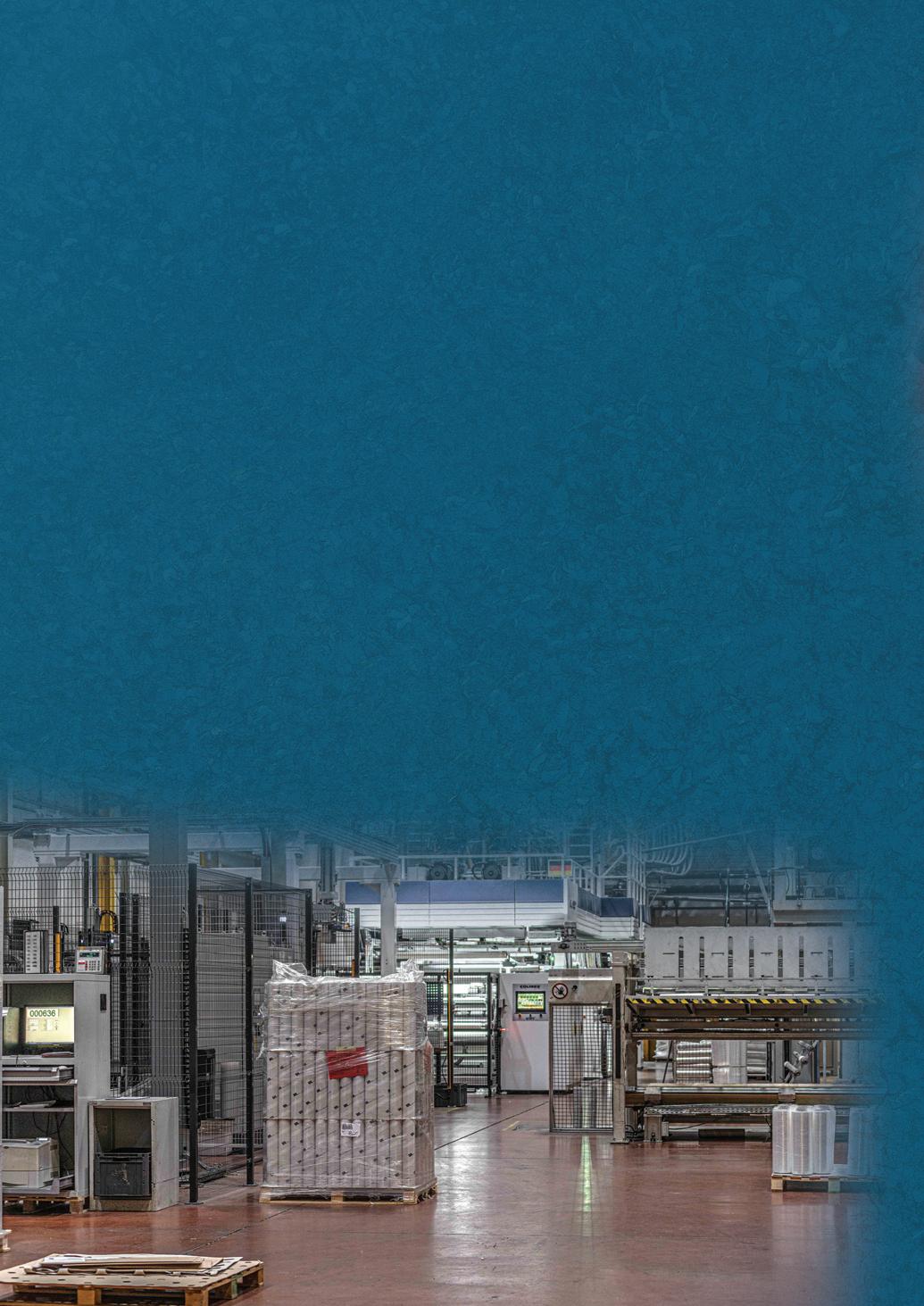
Manupackaging’s recommendation generated for the client a cost saving of £50,000 per annum. “Satisified, the client then asked us to conduct further audits at their other UK sites,” he added. “We demonstrated that the total cost-saving potential would be around £250,000 annually, through additional product rationalisation and smarter purchasing.”
Continuing its development, Manupackaging has the new M Forum, a hybrid showroom at its Schkopau site. Equipped
with state-of-the-art technology, clients can experience live tests of their palletised goods using a wide range of film applications. It aims to offer an innovative infrastructure that facilitates interaction on key topics such as maximum goods protection, perfect load securing and sus tainable packaging solutions.
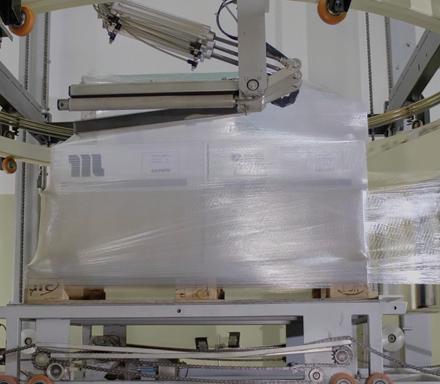
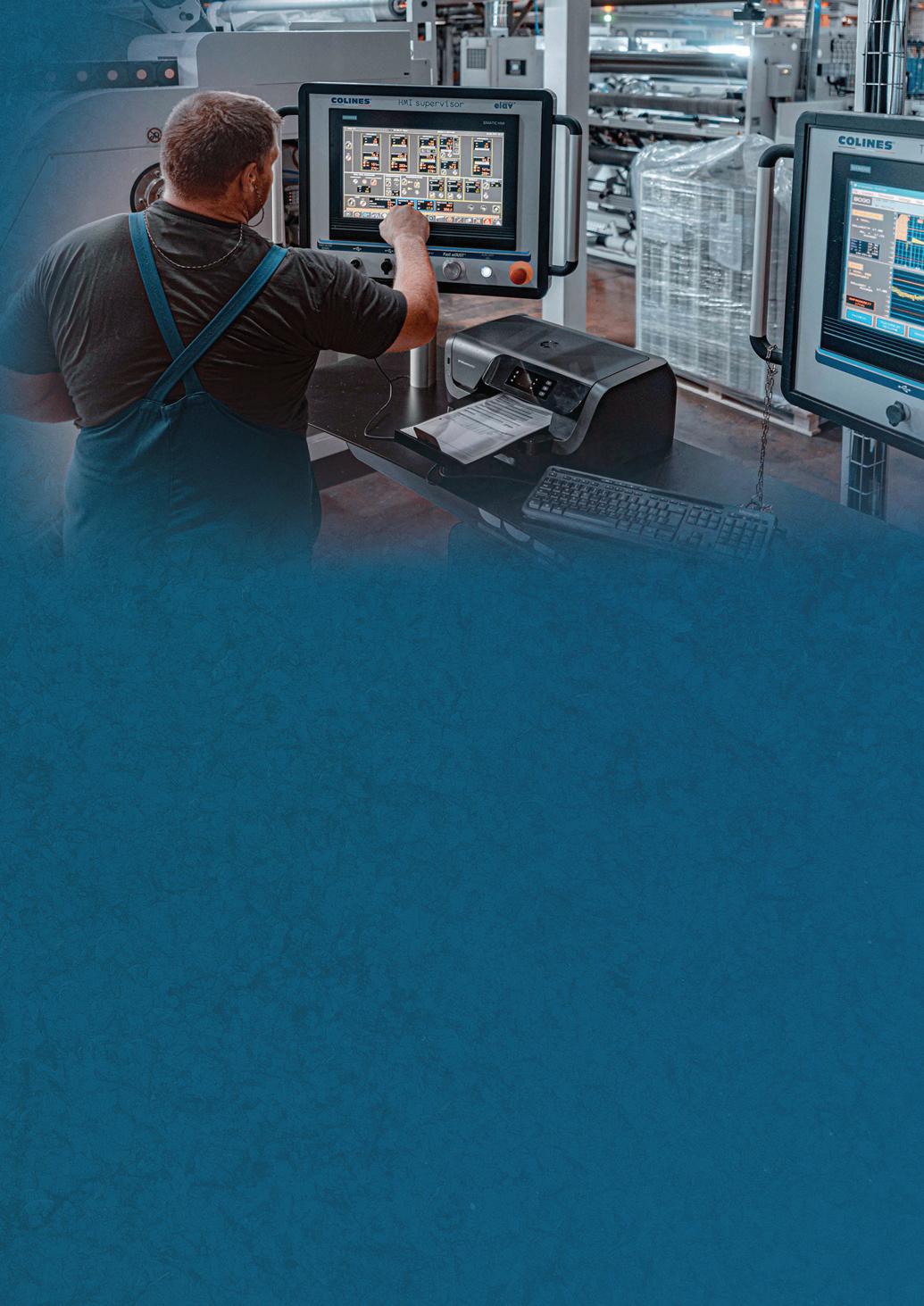
Mr Moroni said the company had also begun a planned switch of 60% of its standard product range to the Manunature® line as part of its commitment to sustainability and recyclable tenets. “It is sustainability in action,” he said, “but it also reflects plans by different countries to tax plastic materials. It fully complements our sustainable practices.
“Regarding future growth, Manupackaging aims to introduce greener products into the market. We intend to grow greener rather than bigger. We see regeneration as a facili tator and have the answers to the impending taxes on plastic materials. We aim to be a one-stop shop with
a comprehensive range that offers a complete packaging solution.”
Mr Di Gioia concluded: “Manupackaging has made incredible efforts in product development over the past three to five years. It’s time to show the market what the company has achieved. It’s a revolution, and people will see Manupackaging as a leading light in innovation.”
